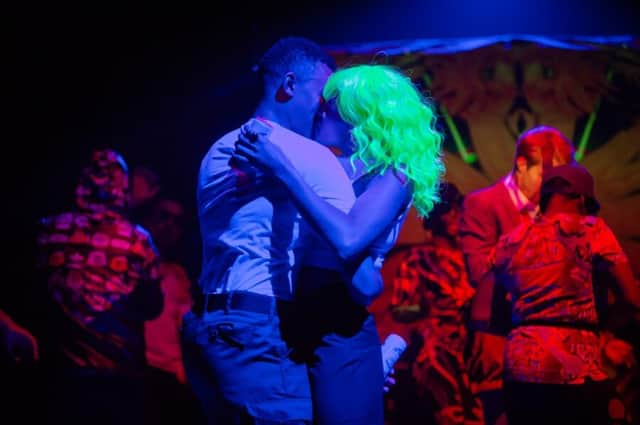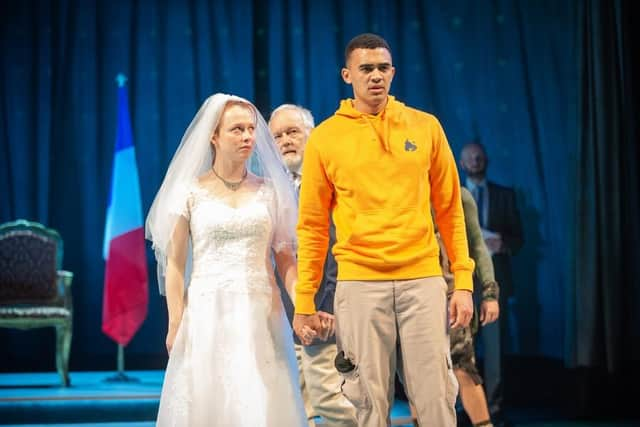Review: RSC’s All’s Well That Ends Well places us in an unfinished story


“’Tis but the shadow of a wife you see, the name and not the thing.”
So says Helena in the dying moments of this curious play. She had earlier fallen in love with Bertram, who was her social superior. He was forced to wed her against his will, and he fled before the marriage could be consummated. He did say he would call her his wife if she bore him a child, but that was clearly a joke, because such a thing could never happen.
Advertisement
Hide AdAdvertisement
Hide AdYet now here she appears, in the final scene, pregnant with his baby; she had disguised herself as another woman. Helena and Bertram share a look and it is as if they are only now seeing each other for the first time. The lights go down. Has the story really ended well?


It is hard to make All’s Well That Ends Well work. But this production does, thanks principally to two outstanding talents: Blanche McIntyre, the director, and Rosie Sheehy, who plays Helena. Their success lies in refusing to compromise with the play. The temptation to soften it and sweeten it must be great: Bertram is so unappealing that Helena’s infatuation with him seems perplexing, while Helena’s behaviour is plainly reprehensible. The choice is either to try to make it make sense and give the characters sympathetic airs that are absent from the script, or to present the play as it is, on its own terms. McIntyre and Sheehy choose the latter option, which in all sorts of ways is also the truer.
This may seem a strange thing to say of a production that transports the action to the present day and makes much use of mobile phones, social media and the like. But notice how it does so: not to make the play seem ‘relevant’, but to show us what is eternal about the fads of these times. The superficiality of our age is of a piece with Helena’s apparent love for Bertram and Bertram’s hatred of Helena, which is about the surface, about what is filtered out, about what we choose to see.
The theme is emphasised by a subplot that at times threatens to take over. It tells of Parolles (an engaging Jamie Wilkes), something of a playboy soldier, and the stripping of his layers of artifice. There are scenes of humiliation that elicit uneasy laughs; preposterous he may be, but he does nothing to deserve the cruelty to which he is subjected. An image of his beaten body is shared online, where it is greeted with LOLs and quips aplenty, challenging the audience’s complicity in all this.
Advertisement
Hide AdAdvertisement
Hide AdThe play is no masterpiece, and there are good reasons why it is rarely performed. This production makes the most of its humour, but can do little to bring a great deal of depth. But then, shallowness is part of the point in a world where even war is conducted in only two dimensions, a drone flown bloodlessly to its prey.
Humans reduced to shadows, things reduced to names. All may not be well, but perhaps the story is not yet ended.
Running until October 8. Visit rsc.org.uk to book.